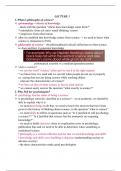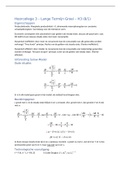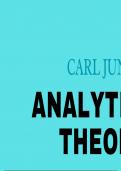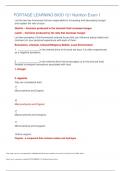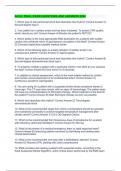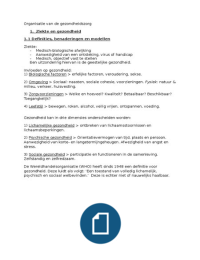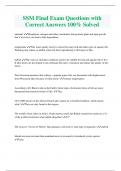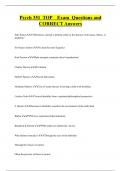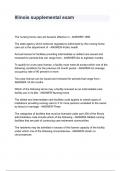Samenvatting
Summary Philosophy of Science (Part I of the course)
- Instelling
- Tilburg University (UVT)
Detailed notes on the prerecorded lectures for the course Philosophy of Science. The document contains the most important information from the first 8 lectures and encompasses all the necessary knowledge for the first part of the course. Given these notes and the notes for the second part of the co...
[Meer zien]
